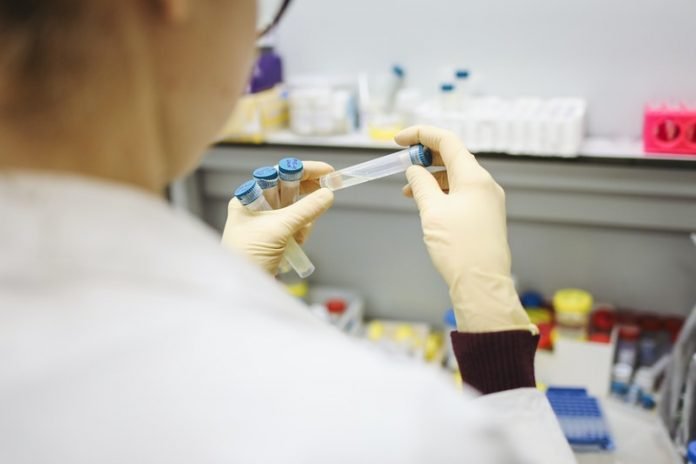
In a new study from Michigan Medicine, researchers found that antibody testing is predictive of prior COVID-19 infection, and rapid screening methods—even from finger pricks—are effective testing tools.
They analyzed antibody tests conducted on more than 500 subjects in patient care settings. They found that people who had COVID, including those with mild symptoms, produced antibodies.
The findings also indicate that rapid screens can predict infection with nearly the same precision as antibody tests conducted in a lab.
In the study, the team examined lateral flow assays: A drop of blood or serum is placed on filter paper that changes color to indicate whether antibodies are present.
They then compared three rapid screens taken by finger pricks or blood draws in point-of-care settings to serology tests assessed in a lab.
They examined data from 512 patients, of which 104 had a history of COVID-19 and a positive PCR test.
Despite some false positives, two rapid tests agreed with positive lab results between 93% and 97% of the time. Both tests outperformed the third brand, which lost its FDA emergency use authorization during the trial.
American vaccination is quickly ramping up—nearly 30% of the population received at least one dose as of March 30, according to the Centers for Disease Control and Prevention.
But in places where immunization lags, the team says these point-of-care antibody tests could help determine who is prioritized.
They will continue evaluating the participants with a new focus. Some recent studies indicate antibodies may persist and offer protection for several months. The team hopes to make that answer more concrete.
If you care about COVID-19, please read studies about a major cause of death in COVID-19 and findings of this depression drug may protect you from severe COVID-19.
For more information about COVID-19 treatment, please see recent studies about how this common drug could cut COVID-19 death risk by nearly 50% and results showing that COVID-19 infection may cause this health problem in men.
The study is published in PLOS ONE. One author of the study is Charles Schuler, M.D.
Copyright © 2021 Knowridge Science Report. All rights reserved.



